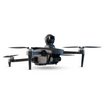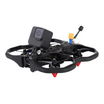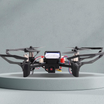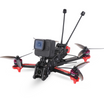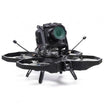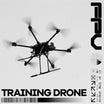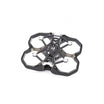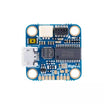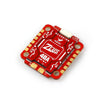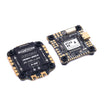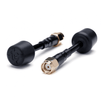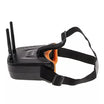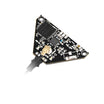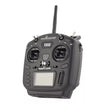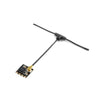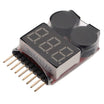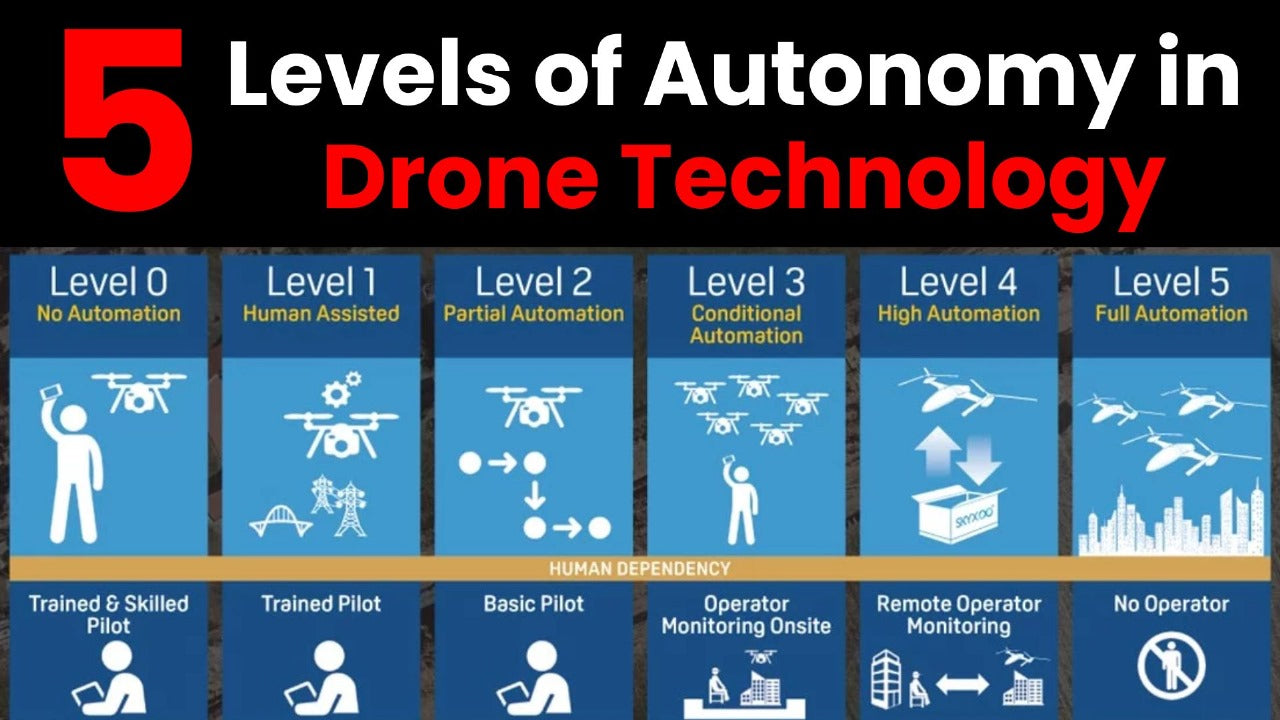Introduction:
In today's rapidly evolving geopolitical landscape, national security and defense sovereignty have become primary concerns for nations worldwide. India, as a major global player, recognizes the importance of developing indigenous defense capabilities to safeguard its interests and maintain strategic autonomy for the sa. Among the cutting-edge technologies shaping modern warfare, drones, or unmanned aerial vehicles (UAVs), have emerged as game-changers. Recognizing this, homegrown companies like insideFPV are leading the charge in developing advanced 'Make in India' drones, paving the way for India's defense sovereignty.
The Significance of Indigenous Drone Technology
Developing indigenous defense technology, including drones, is crucial for India's national security and strategic autonomy. Relying on foreign sources leaves the country vulnerable to potential supply chain disruptions, geopolitical pressures, and export restrictions. By fostering domestic drone manufacturing capabilities, India can mitigate these risks and ensure uninterrupted access to vital defense resources. Moreover, “Make-in-India” drones can be tailored to meet the specific operational requirements of the Indian armed forces, providing a strategic edge on the battlefield. This self-reliance not only strengthens India's defensive capabilities but also reduces its dependence on external sources, enhancing the nation's overall security and sovereignty.
Long-Range Drone Operations: A Game-Changer
One of the most remarkable achievements of insideFPV is the development of drones capable of being controlled from thousands of kilometers away. This revolutionary technology opens up new frontiers in intelligence gathering, surveillance, and reconnaissance missions. With the ability to operate drones remotely, the risk to human personnel is minimized, enabling safer and more efficient operations in hostile or inaccessible environments.
Enhancing Surveillance and Reconnaissance Capabilities
Drones equipped with advanced sensors and imaging systems can provide real-time intelligence and situational awareness, critical for effective decision-making and mission planning. High-resolution cameras, thermal imaging, and radar capabilities enable precise target acquisition, terrain mapping, and monitoring of enemy movements. This invaluable data can aid in anticipating and countering potential threats, strengthening India's defensive posture.
Force Multiplier: Kamikaze Drones and Precision Strike Capabilities
The integration of kamikaze drones, or loitering munitions as an armory, into India's defense arsenal represents a significant force multiplier. These drones can be equipped with high-explosives and guided to their targets with pinpoint accuracy via the GPS tracking providing the real-time coordinates, minimizing collateral damage. By acting as precision strike platforms, kamikaze drones can neutralize high-value targets, disrupt enemy operations, and provide a strategic advantage on the battlefield.
Saving Lives and Preserving Resources
One of the most compelling advantages of drone technology in defense operations is its ability to significantly reduce the risk to human personnel in combat situations. By deploying drones for dangerous missions such as reconnaissance, surveillance, or precision strikes, the potential for casualties among soldiers and military personnel is drastically minimized.
This invaluable capability not only preserves precious human resources but also mitigates the emotional toll on families and communities. The loss of a loved one in combat can have devastating consequences, leaving behind grieving families and impacting the morale of entire communities. By utilizing drones, the risk of such tragedies is minimized, as these unmanned systems can undertake high-risk tasks without endangering human lives.
Moreover, the psychological impact on personnel involved in combat operations can be profound, often leading to long-term mental health issues such as post-traumatic stress disorder (PTSD). By reducing direct exposure to life-threatening situations, drone technology can help alleviate the psychological burden on military personnel, fostering better mental well-being and resilience within the armed forces.
Versatility in Diverse Environments
India's defense forces operate across diverse terrains, from rugged mountains to vast coastlines. Drones offer unparalleled adaptability and versatility, enabling them to excel in various environments. Whether conducting maritime surveillance along the coasts, monitoring borders in remote areas, or supporting counter-insurgency operations in challenging terrains, drones can access regions that may be hazardous or inaccessible for manned aircraft or ground forces. Their ability to be tailored for specific conditions provides the Indian armed forces with a decisive edge, allowing them to gather intelligence, maintain vigilance, and carry out operations in even the most demanding environments.
Cost-Effectiveness and Operational Efficiency
Compared to traditional manned aircraft, drones offer significant cost savings in terms of acquisition, maintenance, and operational expenses. Additionally, their ability to remain airborne for extended periods and cover vast areas makes them highly efficient for long-endurance missions. This cost-effectiveness translates into more efficient resource allocation, enabling the Indian armed forces to maximize their capabilities within budgetary constraints.
Risks and Countermeasures
Using drones for defense has many benefits, but it also comes with some risks. Hackers and electronic attacks are a big threat. To deal with this, we need very strong encryption and secure communication systems. We also need advanced protective measures against cyber threats. Additionally, proper training is extremely important for the people operating and maintaining the drones. This ensures the drones are used correctly, safely, and are always ready for missions. With strong security systems and well-trained personnel, India can make the most of drone technology for defense while managing the risks involved.
The Future of Drones in India's Defense
As technology continues to evolve, the role of drones in India's defense will become increasingly pivotal. Advancements in artificial intelligence, autonomous flight capabilities, and drone technology will further enhance the effectiveness and versatility of drone operations. Collaboration between the Indian armed forces, research institutions, and domestic drone manufacturers will be crucial in staying ahead of the curve and maintaining India's strategic edge.
Conclusion:
The development of 'Make in India' drones represents a significant stride towards India's defense sovereignty and self-reliance. Companies like insideFPV are spearheading this effort, pushing the boundaries of what is possible with drone technology. By harnessing the power of indigenous innovation, India can enhance its surveillance, reconnaissance, and precision strike capabilities, while minimizing risks to human personnel. As the world witnesses the emergence of drones as a crucial component of modern warfare, India's commitment to developing drone technology will undoubtedly strengthen its position as a powerful force in the global defense landscape.
Got More Questions?
Why is the development of indigenous drone technology important for India?
The development of indigenous drone technology is crucial for India's national security and strategic autonomy. It mitigates risks of supply chain disruptions, geopolitical pressures, and export restrictions associated with reliance on foreign sources. Domestic drone manufacturing capabilities also enable tailoring drones to meet the specific operational requirements of the Indian armed forces, providing a strategic edge on the battlefield.
How can long-range drone operations benefit India's defense?
Long-range drone operations, like those developed by insideFPV, open up new frontiers in intelligence gathering, surveillance, and reconnaissance missions. They enable remote operations in hostile or inaccessible environments, minimizing risks to human personnel. This revolutionary technology enhances situational awareness, facilitates safer and more efficient operations, and strengthens India's defensive posture.
What are the advantages of using kamikaze drones in India's defense arsenal?
The integration of kamikaze drones, or loitering munitions, into India's defense arsenal represents a significant force multiplier. These drones can be equipped with high-explosives and guided to their targets with pinpoint accuracy, minimizing collateral damage. They can neutralize high-value targets, disrupt enemy operations, and provide a strategic advantage on the battlefield.


